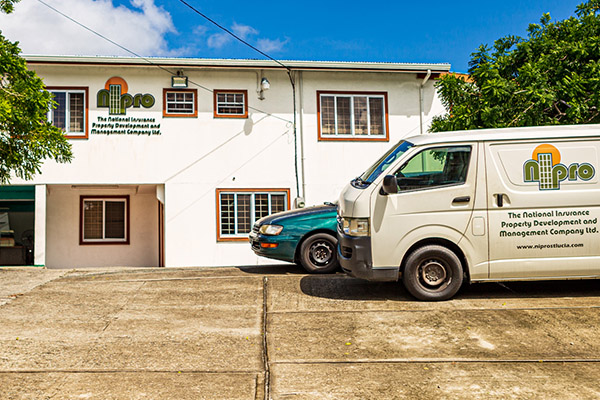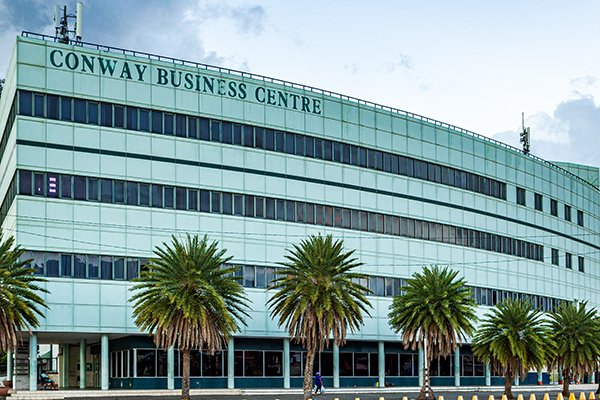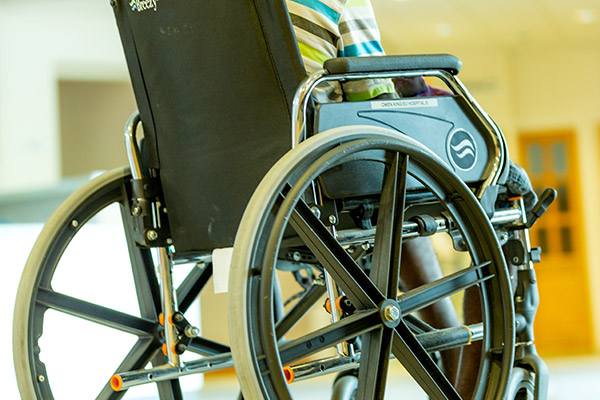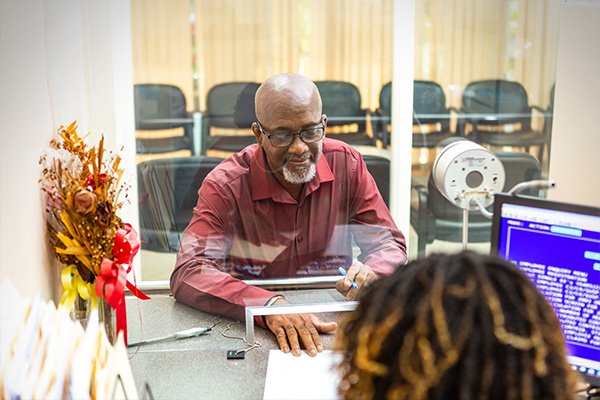- 1. What is the NIC?
-
2. How does it benefit me?
The system has been found to be mutually advantageous to both the employer and the employee. It has relieved employers of the financial obligation of paying the wages of employees who are unable to work, while simultaneously meeting the wages of temporary, replacement workers.
It also provides replacement income for an employee in instances where a loss of income occurs as a result of some incapacity to work, whether short or long term. This is done, provided the employer and employee made regular contributions to the NIC in order to qualify for a benefit.
For maximum use of the benefits, you must know something about the operations of the National Insurance and your rights and obligations under the Corporation.
-
3. How do I register?
You may register as soon as you have attained the age of 16 years. You must present your passport or birth certificate for registration.
-
4. What is a registration number?
This number is your permanent identification at the NIC. It never changes and is never re-issued. It must be quoted on all correspondence between you and the National Insurance Office.
-
5. What are my contributions?
Your contributions are 5% of your gross wages up to a specific ceiling. Your employer also pays a further 5% on your behalf.
-
6. Who benefits from the NIC?
Both the employer and the employee benefit from the NIC
-
7. How do they benefit?
Employees receive some financial help either in the form of an allowance when there is a loss of income. Employers are relieved from the burden of paying the employees who are unable to work.
-
8. What are the benefits?
A person may receive the following benefits as they apply:
- 9. Who is an inspector?
-
10. Must I pay NIC if I am self-employed?
No. You are not obligated to pay NIC. However, if you are self-employed or unemployed and still choose to pay you must register at the National Insurance Office as a Voluntary Contributor or a self-employed person
Voluntary Contributor: – Persons who are not self-employed but wish to continue to have contributions paid on their behalf. These persons must have been in previous insurable paid employment.
Self Employed: – Persons who work on their own behalf and have no employer charged with the responsibility of paying contributions on their behalf.
-
11. Am I entitled to the same benefits if I am a Voluntary Contributor?
Yes. Because of the contributions you make as a Self-Employed or Voluntary Contributor you are entitled to the same benefits listed above. But remember, the amount you contribute is not stipulated and the amount of benefits you receive is directly related to the level of contributions you make. Also you will need to contribute for twelve (12) consecutive months in order to receive benefits.
-
12. Who should contribute?
All employed and self-employed persons and voluntary contributors between the ages of 16 and 65 years.
-
13. How much should a person contribute?
A total of 10% of insurable earnings should be made on behalf of each employee; 5% to be deducted from the employee’s wages or salary and matched by 5% from the employer.
In the case of self-employed/voluntary contributors it is 10% of an agreed stipulated amount.
-
14. How does one know that the deductions made are being paid at the office?
National Insurance encourages all contributors to visit the office periodically to ascertain that their contributions are actually being paid and that all other relevant matters are in order.
-
15. How is NIC able to ascertain that employers are complying with the NIC Act and Regulations?
There is a group of officers employed by the office called Inspectors. Their powers are extensive and enshrined in the NIC Act. Their duty is to enter any premises where there is employment and ensure that all the provisions of the Act are being followed.
-
16. Can the NIC office tell how much money one has in the Fund?
No, the NIC is an insurance and like all insurances, it operates on the principle of pooling of funds. No one has a specific sum of money at any insurance. It is because of this principle that insurances can pay benefits to individuals, in excess of the total of their individual contributions
-
17. When must NIC contributions be paid?
National Insurance contributions must be paid monthly. They can be paid at any National Insurance Office in the state no later than seven days of the month following the month for which they were collected.
-
18. How does the N.I.C. office know on whose behalf that the contributions are paid?
Every employer must submit a Form C3 (schedule of the names, numbers and amount of contributions for each person employed by an employer) every month when the payments are made.
-
19. What happens if the names of persons employed in one month are different than those in another?
The employer simply has to cross out the name of the person who is no longer employed and add the names of new employees.
-
20. Is it difficult for the employer to complete this form every month?
It is not at all difficult since the forms are pre-printed by the NIC office and delivered to the employer well in advance of the date for submission.
-
21. Are there any penalties for employers who do not pay in the contributions to the NIC office?
There are severe penalties for employers who default on their obligations to the N.I.C. The first step is that a surcharge of 1.25% of the amount due and unpaid for the month is levied for every month that the amount remains outstanding. Employers can also be prosecuted in the courts for the unpaid contributions as well as for the late or non-submission of the returns.
-
22. What are insurable earnings?
These are all the earnings on which contributions must be deducted It is made up of:
- Basic Salary/Wages
- Overtime payments
- Cost of living allowances
- Family allowances
- Commission or Profit on Sales
- Payments on account of night or shift work
- Service Charge
- Holiday Pay
NB. No NIC should be deducted on:
- Christmas Bonuses
- Annual Production Bonuses,
- Severance Payments and
- Terminal Gratuities.
-
23. Is there a maximum (ceiling) upon which deductions should be made?
Yes. Deductions should be made on all amounts up to and including the first $5000.00 earnings in a month.
-
24. Why is the ceiling increased periodically?
The ceiling is increased periodically so that the benefits which the NIC pays remain meaningful to the recipients. All benefits are related to the contributions, therefore as wages and salaries increase, so must the contributions.
-
25. If an employee has more than one employer, who is responsible for making the deductions?
Each employer is responsible for making deductions. However, contributions paid should not exceed the maximum for that year, and a refund is given of amounts paid in excess.
-
26. How many claims is an insured person allowed to make in a year?
Contributors are entitled to claim as many times as they meet the qualifying conditions for a benefit
-
27. Can a person borrow money from the NIC?
No, a person cannot borrow money directly from NIC. However, NIC has made monies available to other lending institutions. A contributor would have to meet the qualifying conditions set out by these institutions. These institutions are St Lucia Mortgage Finance Co Ltd., St Lucia Development Bank, Credit Unions, NRDF and all the Commercial Banks.
-
28. Does NIC offer scholarships to the children of the contributors?
National Insurance operates a scholarship programme for needy students. The scholarship programme was launched in September 1988. It assists students who have secured a place at a Secondary School in the state but who experience difficulties in securing the necessary finances to attend the schools. It is administered through the Ministry of Education. The recipients do not have to be the children of contributors.
SUBSIDIARIES
Corporate Information
History
FAQs
Affiliates
Mission and Vision
OUR BENEFITS
- TENDER NOTICE FOR SALE OF VEHICLE
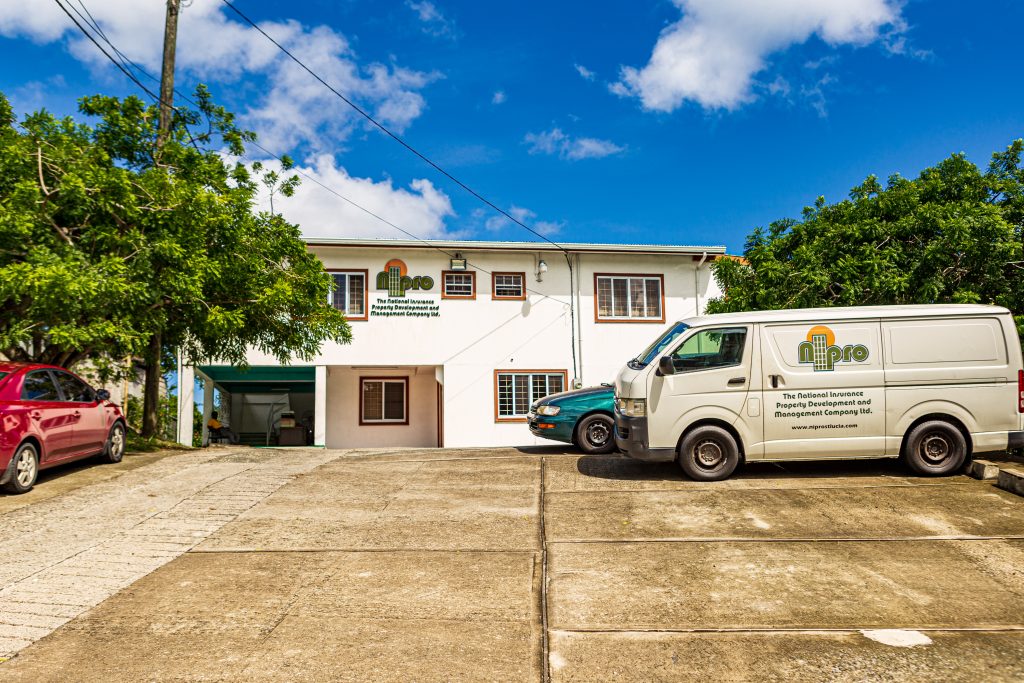 The National Insurance Development & Management Company Ltd. invites sealed bids for the sale of the following vehicle on an “as-is, where-is” basis: Vehicle Details: Tender Submission Guidelines: MR. Roston Taylor Chief Executive Officer NIPRO Vide Bouitelle La Clery Terms and Conditions: For […]
The National Insurance Development & Management Company Ltd. invites sealed bids for the sale of the following vehicle on an “as-is, where-is” basis: Vehicle Details: Tender Submission Guidelines: MR. Roston Taylor Chief Executive Officer NIPRO Vide Bouitelle La Clery Terms and Conditions: For […] - Inventory Procurement Officer-Vacancy
 JOB SUMMARY Sourcing, purchasing and managing of inventory including tools. Ensuring appropriate documentation and reporting on stock ordered, received, and maintained, managing and delivering inventory supplies, conducting physical count of all company stock and subsequent stock reconciliations and analytical reviews. DUTIES AND RESPONSIBILITIES 1. Research, […]
JOB SUMMARY Sourcing, purchasing and managing of inventory including tools. Ensuring appropriate documentation and reporting on stock ordered, received, and maintained, managing and delivering inventory supplies, conducting physical count of all company stock and subsequent stock reconciliations and analytical reviews. DUTIES AND RESPONSIBILITIES 1. Research, […]


